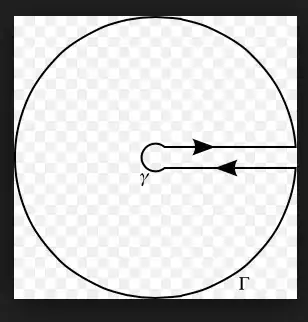$\newcommand{\angles}[1]{\left\langle\, #1 \,\right\rangle}
\newcommand{\braces}[1]{\left\lbrace\, #1 \,\right\rbrace}
\newcommand{\bracks}[1]{\left\lbrack\, #1 \,\right\rbrack}
\newcommand{\ceil}[1]{\,\left\lceil\, #1 \,\right\rceil\,}
\newcommand{\dd}{{\rm d}}
\newcommand{\ds}[1]{\displaystyle{#1}}
\newcommand{\dsc}[1]{\displaystyle{\color{red}{#1}}}
\newcommand{\expo}[1]{\,{\rm e}^{#1}\,}
\newcommand{\fermi}{\,{\rm f}}
\newcommand{\floor}[1]{\,\left\lfloor #1 \right\rfloor\,}
\newcommand{\half}{{1 \over 2}}
\newcommand{\ic}{{\rm i}}
\newcommand{\iff}{\Longleftrightarrow}
\newcommand{\imp}{\Longrightarrow}
\newcommand{\Li}[1]{\,{\rm Li}_{#1}}
\newcommand{\norm}[1]{\left\vert\left\vert\, #1\,\right\vert\right\vert}
\newcommand{\pars}[1]{\left(\, #1 \,\right)}
\newcommand{\partiald}[3][]{\frac{\partial^{#1} #2}{\partial #3^{#1}}}
\newcommand{\pp}{{\cal P}}
\newcommand{\root}[2][]{\,\sqrt[#1]{\vphantom{\large A}\,#2\,}\,}
\newcommand{\sech}{\,{\rm sech}}
\newcommand{\sgn}{\,{\rm sgn}}
\newcommand{\totald}[3][]{\frac{{\rm d}^{#1} #2}{{\rm d} #3^{#1}}}
\newcommand{\ul}[1]{\underline{#1}}
\newcommand{\verts}[1]{\left\vert\, #1 \,\right\vert}$
\begin{align}&\color{#66f}{\large%
\int_{-\infty}^{\infty}{1 \over \cosh\pars{x}}\,\expo{2\pi\ic tx}\,\dd x}
=2\overbrace{\int_{-\infty}^{\infty}
{\pars{\expo{x}}^{2\pi\,\ic\,t} \over \pars{\expo{x}}^{2} + 1}
\pars{\expo{x}\,\dd x}}^{\ds{\dsc{\expo{x}}\ \mapsto\ \dsc{x}}}
=\dsc{2\int_{0}^{\infty}{x^{2\pi\,\ic\,t} \over x^{2} + 1}\,\dd x}
\\[5mm]&=2\bracks{2\pi\ic\,{\pars{\expo{\ic\pi/2}}^{2\pi\,\ic\,t} \over 2\ic}
+2\pi\ic\,{\pars{\expo{3\ic\pi/2}}^{2\pi\,\ic\,t} \over -2\ic}
-\int_{\infty}^{0}{x^{2\pi\,\ic\,t}\pars{\expo{2\pi\ic}}^{2\pi\,\ic\,t}
\over x^{2} + 1}\,\dd x}
\\[5mm]&=2\pi\expo{-\pi^{2}\,t} - 2\pi\expo{-3\pi^{2}\,t}
+\expo{-4\pi^{2}\,t}\ \dsc{2\int^{\infty}_{0}{x^{2\pi\,\ic\,t}
\over x^{2} + 1}\,\dd x}
\end{align}
where we used a 'key-hole contour' as depicted in the following picture:
 '
'
Integrand poles are at $\dsc{\expo{\ic\pi/2} = \ic}$ and
$\dsc{\expo{3\ic\pi/2} = -\ic}$ according to the $\ds{x^{2\pi\ic t}\,}$-branch cut.
Then,
\begin{align}&\color{#66f}{\large%
\int_{-\infty}^{\infty}{1 \over \cosh\pars{x}}\,\expo{2\pi\ic tx}\,\dd x}
=\dsc{2\int^{\infty}_{0}{x^{2\pi\,\ic\,t}\over x^{2} + 1}\,\dd x}
=2\pi\,{\expo{-\pi^{2}\,t} - \expo{-3\pi^{2}\,t} \over 1 - \expo{-4\pi^{2}\,t}}
\\[5mm]&=2\pi\,{\expo{\pi^{2}\,t} - \expo{-\pi^{2}\,t}
\over \expo{\pi^{2}\,t} - \expo{-2\pi^{2}\,t}}
=2\pi\,{\sinh\pars{\pi^{2}\,t} \over \sinh\pars{2\pi^{2}\,t}}
={\pi \over \cosh\pars{\pi^{2}\,t}}
=\color{#66f}{\large\pi\sech\pars{\pi^{2} t}}\,,\qquad t \in {\mathbb R}
\end{align}
 '
'